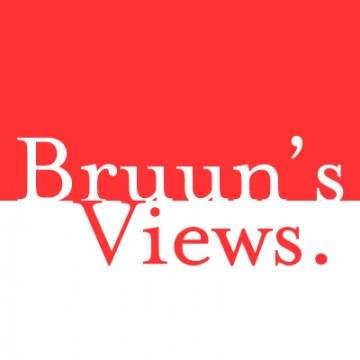Scott Bruun: Portland’s Uber-Control Over Free Markets
Wednesday, December 17, 2014

All good, and all valuable. But where Uber absolutely excels is at exposing Portland City Hall’s Herculean hypocrisy.
In an Oregonian opinion piece last week, Charlie Hales wrote, “I know many of us are eager for new technology to take effect in Portland. And it will. But I am unwilling to rush to market simply to satisfy the arrogance and greed of any one particular company.”
Alright, well what about a “rush to market” to cure a disease or provide a life-saving new drug? And if that comparison is too much of a stretch (we are only talking about car rides, after all), then how about simply a “rush to market” so that Portlanders can enjoy a higher quality of life? Or even just an available and safe ride home after a New Year’s Eve Party?
And after reading the mayor’s piece, maybe I’m not alone in needing to channel my inner Ricky Bobby from Talladega Nights: Mr. Mayor, with all due respect, and remember I'm sayin' with all due respect, your analysis is not only totally wrong, it’s also slightly embarrassing and laughably patronizing . It’s the kind of ethos that would always make Portland a second-best kind of city.
In his piece, Mayor Hales also wrote of Portland’s long history as a “sharing economy.” The mayor then mentions several examples to support this. Of course the example he uses are all city or government provided services. Public services paid for by taxpayers and managed centrally by governing bodies.

And that’s the challenge, because Portland’s political elite do not embrace free markets. They haven’t for decades. In fact it seems like they can barely stomach the kind of hybrid, highly-managed, and often kowtowed market that does exist in Portland. A market that goes along to get along, because playing that game seems to be the only way commerce can survive in Portland.
To Uber’s credit, they don’t want to play that game. They want to compete, fairly. They are looking to facilitate a service that many Portlanders want, with a price-point and availability that currently doesn’t exist. And they are successful and profitable without having to rely on the protected-labor, quasi-monopoly government cronyism that defines most big city taxi regimes.
Uber is a disruptive technology. Meaning sooner or later, the old way of doing things will change. And with that disruptive technology will come more choice, more options, more availability, more customization, and a lower price.
Don’t these all sound like things that a truly “progressive” city should embrace?

Banner Photo Credit: visualpanic via Compfight cc
Related Articles
- Scott Bruun: Does Portland Really Want Your Business?
- Scott Bruun: Education, Priorities, and the Governor’s Budget
- Scott Bruun: Federal Budget Politics Put Oregon Fishermen At Risk
- Scott Bruun: How Ron Wyden Can Lead The U.S. Senate
- Scott Bruun: Oregon Should Say No to Open Primary
- Scott Bruun: The Beaver State’s Lame Duck
- Scott Bruun: The Importance of Winston Churchill in Portland
- Scott Bruun: The Problem With Congress’s Work Schedule
- Scott Bruun: There’s No More Political Giants in Oregon
- Scott Bruun: To Boldly Go Where No Ad Has Gone Before
- Scott Bruun: Why I’m Thankful For Former Portland Attorney, Kelly Clark
- Scott Bruun: Why the GOP Should Look to Portland’s Urban Conservatives




 Delivered Free Every
Delivered Free Every
Follow us on Pinterest Google + Facebook Twitter See It Read It